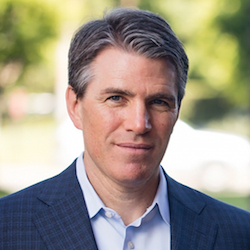
Real estate investment trust HCP continues to shed Brookdale Senior Living properties from its portfolio, REIT executives said Tuesday during an earnings call.
The two organizations had announced plans toward that end in November, to help HCP reduce its exposure to Brookdale and give Brookdale more flexibility to negotiate to sell some or all of its assets.
HCP closed on the sale of one community to Brookdale in January and expects to close on the sale of an additional five communities to the company near the end of the first quarter, HCP Executive Vice President and CFO Peter Scott told analysts and investors on Tuesday’s call.
The organizations previously announced that the REIT would buy Brookdale’s 10% equity ownership in two RIDEA joint ventures with HCP for $99 million and that Brookdale would use the proceeds to help buy the aforementioned six properties. HCP also is selling its remaining investments in the RIDEA II senior housing joint venture to an investor group led by Columbia Pacific Advisors.
Also, HCP is in the process of selling or transitioning 36 senior housing operating properties and 32 triple-net leased communities currently operated by Brookdale. “Upon completion, these transactions will significantly reduce our Brookdale concentration, improve lease coverage of our remaining triple-net assets leased to Brookdale, increase tenant diversification in our portfolio and enhance our balance sheet and credit profile,” the REIT said in a news release issued in conjunction with the call.
HCP has not named the new operators for the approximately 40 properties that it is transitioning, but Kendall Young, senior managing director – senior housing properties, said most of them already have relationships with HCP and are “well-known, high-quality operators.” Those transitions will begin in mid-March, and most will be completed by the end of the second quarter, he said.
In the fourth quarter of 2017, the REIT said it closed on $1.6 billion in dispositions related to Brookdale.
Repositioning
Transactions related to Brookdale represent only part of the REIT’s recent efforts to reposition itself, President and CEO Thomas Herzog said.
“Over the past 18 months, we have spun off, sold, monetized or are in the process of selling over $10 billion of non-core real estate and mezzanine debt,” he said, later adding that the REIT’s rebalanced portfolio will include a “55% concentration in specialty office based on value with the balance in senior housing and a small portfolio of well-covered hospitals.”
Senior housing, medical office and life science properties, Herzog said, “will benefit from the demographic trends without exposure to the bumpy ride of government reimbursement. We do not intend to move back up the risk curve with new investments in mezzanine debt, SNFs, international investments or investments in new hospitals.”
The REIT plans to invest $400 million to $500 million per year in development, redevelopment and capital expenditures to “keep our portfolio fresh,” he said.
Other significant transactions
Discussing other significant transactions in the fourth quarter, company executives shared that in November, HCP acquired the Residence at Watertown Square, a 90-unit, three-year-old senior housing community in Watertown, MA, for $45 million. HCP owns the community in a consolidated joint venture with LCB Senior Living.
“We’ve been trying to find opportunities to partner with them for quite some time, and this was an excellent fit as we continually look to add high-quality assets to our portfolio,” Scott said.
In December, HCP entered into a $115 million participating development financing agreement with Columbia Pacific Advisors for a 243-unit high-rise senior living development in downtown Seattle. The $147 million project, called 620 Terry, is expected to be completed in 2019. The building will have a mix of independent living, assisted-living and memory care units and will be operated by Leisure Care.
Both Watertown and 620 Terry demonstrate HCP’s investment plan to focus on select operators in markets where it would like to grow, Herzog said.
Looking ahead
Looking ahead, the CEO said, “We have a cautious view for our seniors housing operating portfolio in 2018 given new supply headwinds, wage growth pressures, one of the toughest flu seasons in recent years and potential temporary disruption due to operator transition, yet the long-term baby boomer demographics and higher penetration rates are irrefutable and we believe will create opportunity through the cycles.”
Scott said that senior living properties in the REIT’s portfolio have not experienced significant move-outs, “but we have been impacted by embargoes in certain assets, which has resulted in a reduction in move-ins.”
Young said that communities in both the seniors housing operating portfolio and the triple-net lease portfolio are experiencing similar challenges related to flu and supply.
Properties not affected by the flu, however, started seeing a higher number of inquiries, more tours and an increase in move-ins toward the end of January — “higher than we’ve had in the past,” he said.



